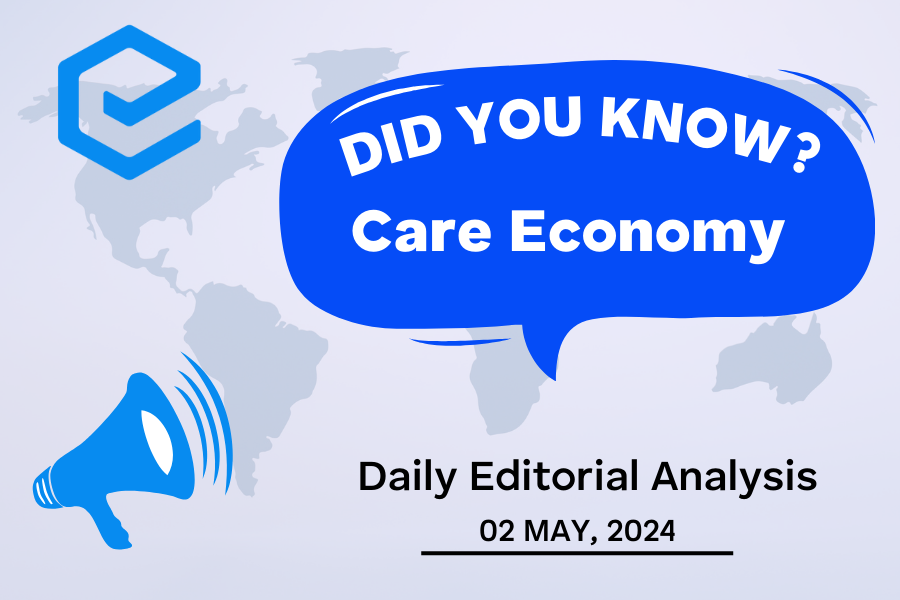
In recent years, the concept of the “care economy” has garnered increasing attention as societies grapple with the challenges of caregiving, particularly in the realms of healthcare and childcare. This burgeoning focus underscores the vital but often undervalued role that caregiving plays in sustaining communities and economies. The care economy encompasses a wide array of activities, from nursing and eldercare to early childhood education, all of which are essential for supporting individuals and families. However, despite its significance, caregivers often face inadequate compensation, limited access to resources, and societal devaluation of their work. Addressing these disparities is crucial not only for promoting social justice but also for fostering economic resilience and growth. As nations strive to build more equitable and sustainable societies, investing in the care economy emerges as a pressing imperative, one that demands thoughtful policy reforms and a reevaluation of societal priorities.
Tag: GS-1
In News: The article explores various dimensions of unpaid care work in India and emphasizes the necessity for a care economy that is more valued, inclusive, and equitable.
Contents
Constitutional Provisions Related to Working Women in India
- Article 14: Right to Equality
- This article guarantees that everyone is equal before the law and entitled to equal protection. It prohibits discrimination based on gender in the workplace, ensuring that working women have the same legal rights as men.
- Article 15: Prohibition of Discrimination
- Article 15 prohibits discrimination on various grounds, including sex, in areas such as public employment. It ensures that women have equal opportunities to access government jobs and are not discriminated against based on their gender.
- Article 16: Equality of Opportunity in Public Employment
- Article 16 guarantees equality of opportunity in matters of public employment. It protects women from being denied employment or facing disadvantages due to their gender, ensuring fair treatment in the workforce.
- Article 39: Directive Principles of State Policy
- Article 39 under the Directive Principles of State Policy includes provisions related to gender equality and workers’ rights. It emphasizes that both men and women have the right to an adequate means of livelihood and advocates for equal pay for equal work, regardless of gender.
- Article 42: Directive Principles of State Policy
- Article 42 directs the state to make provisions for securing just and humane conditions of work and maternity relief. It mandates the state to ensure safe working environments and provide maternity benefits for women, recognizing the need for gender-sensitive policies in the workforce.
Care Economy: Understanding the Concept
- Overview of the Care Economy
- The care economy encompasses the provision of care and support services related to health, education, childcare, eldercare, and other forms of social care. It includes both paid and unpaid care work crucial for human survival, welfare, and labor force reproduction.
- Historical Perspectives on Unpaid Labor
- Historically, unpaid labor, particularly caregiving and domestic work performed by women within households, has been undervalued and often excluded from conventional definitions of “work.” Feminist economists have critiqued this exclusion and advocated for recognizing and valuing women’s contributions to the care economy.
- Feminist Economists’ Critique
- Feminist economists have challenged traditional economic frameworks for failing to account for the significant contributions of unpaid care work to the economy. They argue that caregiving and domestic work are essential for social reproduction and should be valued and supported by policies and institutions.
- Beijing Platform for Action
- The Beijing Platform for Action, adopted at the Fourth World Conference on Women in 1995, recognized the importance of unpaid care work and called for its recognition and redistribution. It advocated for policies and measures to support women’s roles in caregiving, domestic work, and volunteerism, aiming to achieve gender equality and women’s empowerment.
Source: IE
Frequently Asked Questions (FAQs)
Q: What is the care economy?
The care economy refers to the sector of the economy that encompasses paid and unpaid caregiving activities, including healthcare, childcare, eldercare, and other forms of support essential for maintaining the well-being of individuals and communities.
Q: Why is the care economy important?
The care economy plays a crucial role in sustaining societies by providing essential services that support individuals throughout their lives. It contributes to human development, social stability, and economic productivity, making it integral to the functioning of communities and economies.
Q: What are the challenges facing the care economy?
Challenges facing the care economy include inadequate compensation for caregivers, limited access to resources and support services, disparities in caregiving burdens based on gender and socioeconomic status, and societal undervaluation of caregiving work.
Q: How can we improve the care economy?
Improving the care economy requires policies and initiatives that address issues such as fair compensation for caregivers, investment in caregiving infrastructure and resources, promoting gender equality in caregiving responsibilities, and recognizing the economic and social value of caregiving.
Q: What are the benefits of investing in the care economy?
Investing in the care economy can lead to numerous benefits, including improved health outcomes, enhanced social well-being, increased workforce participation, greater gender equality, and stronger economic growth through the creation of jobs and the stimulation of consumer spending.
In case you still have your doubts, contact us on 9811333901.
For UPSC Prelims Resources, Click here
For Daily Updates and Study Material:
Join our Telegram Channel – Edukemy for IAS
- 1. Learn through Videos – here
- 2. Be Exam Ready by Practicing Daily MCQs – here
- 3. Daily Newsletter – Get all your Current Affairs Covered – here
- 4. Mains Answer Writing Practice – here

